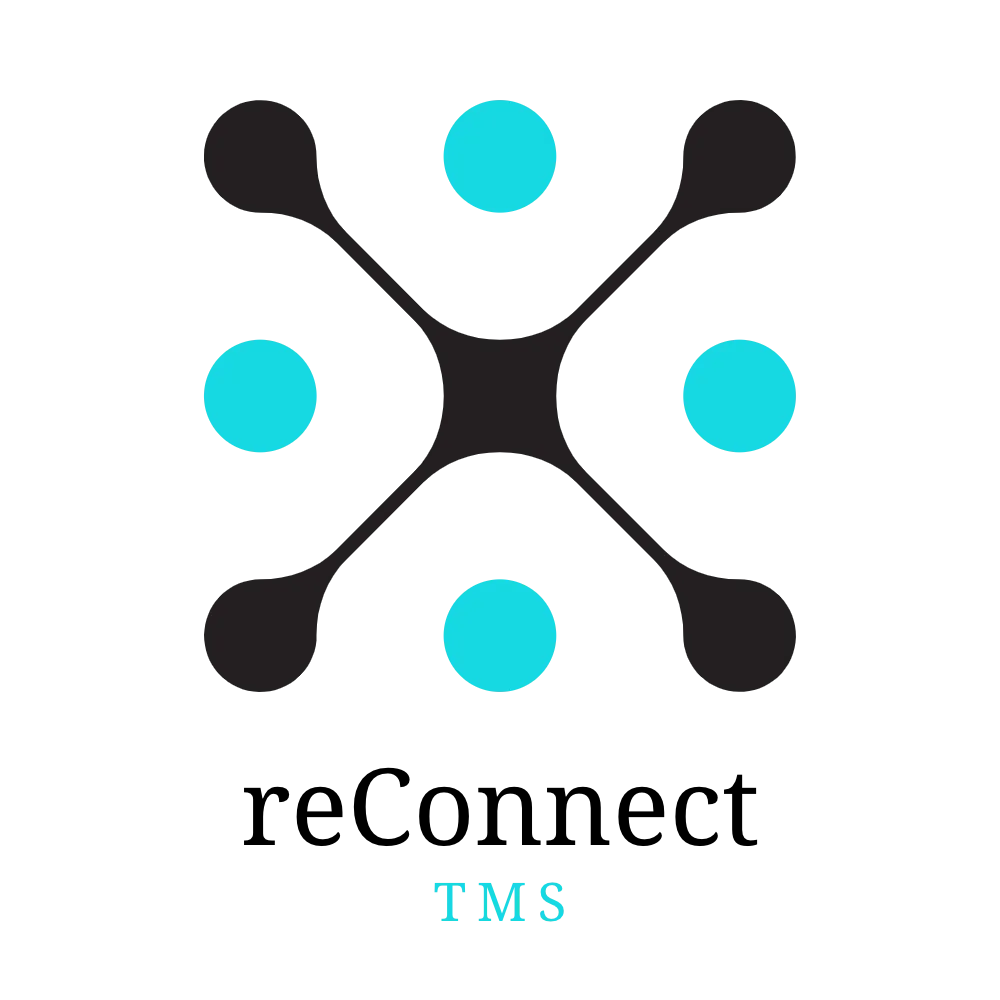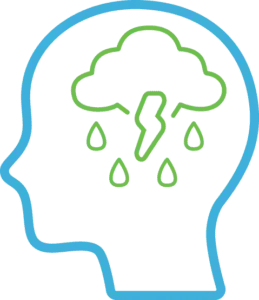Providing Australians with access to the world’s best mental health therapies
3 Albert Coates Ln, Melbourne VIC 3000, AU
Anxious Depression
Anxious Depression refers to anxiety symptoms in patients suffering from Major Depressive Disorder (MDD). This is distinct from patients that experience depression that is triggered by a primary diagnosis of an anxiety disorder, such as generalized anxiety disorder or panic disorder.
Both anxiety and depression have been associated with experiencing distress when facing the unknown. For depression, the trigger is related to a sense of sadness, and anxiety grows from thoughts of a future “threat” whose likelihood remains unclear. While depression is defined by a lack of energy, anxiety is perceived as more of a system overload and is tied to excessive concern over the possibility of experiencing harm.
Common anxiety symptoms include nervousness, feelings of panic, increased heart rate, rapid breathing, sweating, insomnia, trembling, and difficulty focusing or thinking clearly.

Treatment Options in Your Battle Against Anxious Depression
Current treatment options for anxiety comorbid with depression are similar to those for anxiety disorders and non-anxious major depressive disorder. Deep TMS offers a new non-medication, noninvasive option that addresses some of the limitations of traditional treatment methods.
Deep TMS: Deep Transcranial Magnetic Stimulation is a noninvasive treatment that utilizes magnetic pulses to safely and effectively regulate the neural activity of target brain structures. Deep TMS has many advantages over traditional treatment options – no systemic side effects common to medication, no anesthesia or recovery period, and proven efficacy for treatment-resistant patients.
Psychotherapy: Several forms of talk therapy have been shown to be effective in treating anxious depression. Cognitive-Behavioral Therapy (CBT) shows the patient how to replace negative thoughts with productive patterns of thoughts and actions. Interpersonal Therapy (IPT) addresses issues in current relationships to reduce anxiety and depression symptoms. Problem-Solving Therapy enables patients to better manage stress through identifying barriers, developing creative solutions, and making effective decisions. Psychotherapy requires significant time commitment and may not be sufficient alone when faced with more severe anxious depression.
Psychopharmacology: Several classes of medication have been shown to successfully treat both depression and anxiety symptoms. They include selective serotonin reuptake inhibitors (SSRIs), serotonin and norepinephrine reuptake inhibitors (SNRIs), and tricyclic antidepressants (TCAs). Studies have noted, though, that patients with anxious depression often do not experience sustained symptom improvement after initial treatment successes and have a greater risk of side effects such as weight gain or sexual dysfunction.
ECT: Electroconvulsive therapy induces a brief set of seizures that stimulate the brain’s neural activity. ECT has been found to help alleviate severe depression, but it’s impact on anxiety is debated with some studies showing limited improvement and others showing exacerbation of symptoms. ECT requires full sedation under anesthesia and presents potential side effects such as nausea, confusion, and short-term memory loss.
Lifestyle Changes to Protect Against Anxious Depression: Stress-reduction habits such as improved sleep habits, better diet, and frequent exercise may be beneficial in reducing symptoms of anxious depression. In addition, avoidance of alcohol, drugs, and tobacco is valuable as they may worsen symptoms and can negatively impact other treatment with therapy, medication, or Deep TMS. Lastly, social support groups can provide an effective network to mitigate anxiety and depression.

More About Deep TMS Treatment for Depression

BrainsWay’s Deep TMS treatment
Deep TMS treatment for depression using the H1 Coil has been shown in multiple randomized controlled and open label studies to also alleviate co-morbid anxiety symptoms. Among 212 subjects in a 2015 multicenter, double-blind, randomized controlled clinical study, Deep TMS compared to sham stimulation showed significantly larger reductions in anxiety symptoms from baseline to week 5 (20 TMS sessions). These improvements were durable for at least 16 weeks.
Lorem ipsum dolor sit amet, consectetuer adipiscing elit. Aenean commodo ligula eget dolor. Aenean massa. Cum sociis natoque penatibus et magnis dis parturient montes, nascetur ridiculus mus. Donec quam felis, ultricies nec, pellentesque eu, pretium quis, sem. Nulla consequat massa quis enim. Donec pede justo, fringilla vel, aliquet nec, vulputate eget, arcu. In enim justo, rhoncus ut, imperdiet a, venenatis vitae, justo. Nullam dictum felis eu pede mollis pretium. Integer tincidunt. Cras dapibus. Vivamus elementum semper nisi. Aenean vulputate eleifend tellus. Aenean leo ligula, porttitor eu, consequat vitae, eleifend ac, enim. Aliquam lorem ante, dapibus in, viverra quis, feugiat a, tellus.
Phasellus viverra nulla ut metus varius laoreet. Quisque rutrum. Aenean imperdiet. Etiam ultricies nisi vel augue. Curabitur ullamcorper ultricies nisi. Nam eget dui. Etiam rhoncus. Maecenas tempus, tellus eget condimentum rhoncus, sem quam semper libero, sit amet adipiscing sem neque sed ipsum. Nam quam nunc, blandit vel, luctus pulvinar, hendrerit id, lorem. Maecenas nec odio et ante tincidunt tempus. Donec vitae sapien ut libero venenatis faucibus. Nullam quis ante. Etiam sit amet orci eget eros faucibus tincidunt. Duis leo. Sed fringilla mauris sit amet nibh. Donec sodales sagittis magna. Sed consequat, leo eget bibendum sodales, augue velit cursus nunc, quis gravida magna mi a libero. Fusce vulputate eleifend sapien.
Vestibulum purus quam, scelerisque ut, mollis sed, nonummy id, metus. Nullam accumsan lorem in dui. Cras ultricies mi eu turpis hendrerit fringilla. Vestibulum ante ipsum primis in faucibus orci luctus et ultrices posuere cubilia Curae; In ac dui quis mi consectetuer lacinia. Nam pretium turpis et arcu. Duis arcu tortor, suscipit eget, imperdiet nec, imperdiet iaculis, ipsum. Sed aliquam ultrices mauris. Integer ante arcu, accumsan a, consectetuer eget, posuere ut, mauris. Praesent adipiscing. Phasellus ullamcorper ipsum rutrum nunc. Nunc nonummy metus. Vestibulum volutpat pretium libero. Cras id dui. Aenean ut eros et nisl sagittis vestibulum. Nullam nulla eros, ultricies sit amet, nonummy id, imperdiet feugiat, pede. Sed lectus. Donec mollis hendrerit risus. Phasellus nec sem in justo pellentesque facilisis.
For Adults
You can call our highly experienced clinical team if your child, teenager or family is going through difficulties.
ANXIETY
DEPRESSION
BIPOLAR DISORDER
ADHD
A – Z OF ISSUES
For Children
You can call our highly experienced clinical team if your child, teenager or family is going through difficulties.
ADHD
ASPERGERS AND AUTISM
DEPRESSION
ANXIETY DISORDERS
A-Z OF ISSUES
For Business
You can call our highly experienced clinical team if your child, teenager or family is going through difficulties.
MEDICO LEGAL REPORTS
OCCUPATIONAL HEALTH
LOCUMS AND STAFFING
NEUROPSYCHOLOGICAL ASSESSMENTS
MENTAL CAPACITY ASSESSMETNS

WHO WE ARE
We Are The Best Support for You
Our clinic largest private mental health partnership, with a carefully selected nationwide team of Psychiatrists, Psychologists and Psychotherapists. We only work with highly experienced and capable partners who share our values.
WHAT WE OFFER FOR YOU
Therapies & Treatments
ONLINE SESSION
Get a Counselling Right Now
Our clinic largest private mental health partnership, with a carefully selected nationwide team of Psychiatrists, Psychologists and Psychotherapists. We only work with highly experienced and capable partners who share our values.

TMS therapy is now covered by Medicare
If your depression hasn’t responded well to two or more anti-depressants, you will eligible for Medicare reimbursement.

HEADQUARTERS
3 Albert Coates Ln, Melbourne VIC 3000, Australia
© 2023 reConnect TMS. All Rights Reserved.






